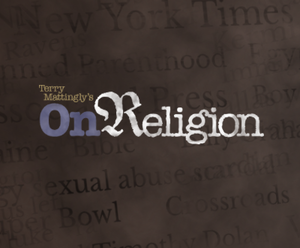
Priests in the Church of England have faced many challenges in recent decades — from plummeting attendance numbers to fierce debates about marriage and sexuality.
Nevertheless, a coronavirus epistle from Archbishop of Canterbury Justin Welby and Archbishop of York John Sentamu was a shocker — offering worship guidelines even stricter than those released by the government.
“Our church buildings must now be closed not only for public worship, but for private prayer as well and this includes the priest … offering prayer in church on their own,” they wrote. “A notice explaining this should be put on the church door.”
Thus, there was quiet defiance in Father Marcus Walker’s voice as he stood alone near the altar of St. Bartholomew the Great — London’s oldest surviving church — on the first Sunday after Easter and said, “I speak in the name of the Living God: Father, Son and Holy Spirit. Amen. And so we’re back.”
There was no response from his Facebook Live flock, but the priest stressed that he had been listening to his people. The bottom line: There had to be some way to proceed that stressed public safety, while addressing people’s spiritual needs.
“Their voices have been loud, insistent and — so far — unanimous,” he said, in his sermon. “I have received scores of letters and emails, calling on services to be restored here in their church: the church they have upheld and kept up, where they were married, where they buried a partner, saw a child christened, found God, were confirmed.
“This is their church and I am their pastor. I owe them my solidarity. As one said in her letter: ‘We don’t need you in solidarity at home, we need you in solidarity at the altar of our church.’ “
With Easter in the rear-view mirror, members of ancient Christian flocks — those built on liturgies and sacraments — are waiting to see how their shepherds will walk a liturgical tightrope between church and state.
The bottom line: It’s easier for megachurches to put their dramatic sermons and worship bands on home computer screens than for priests to digitize Holy Communion and rites of confession. Clergy in all faith traditions have, in extreme cases, been forced to pray with dying believers over smartphones or through nursing-home windows.
New York Cardinal Timothy Dolan, in an online essay, stressed that whenever Catholic priests approach their altars the saints and “all God’s people” are spiritually present. He also praised clergy who have found ways to carry on with their work — while following social-distancing guidelines.
“Our parish priests have risen to the occasion, with innovative ways to distribute Holy Communion, expose the Blessed Sacrament for adoration, hear confessions and anoint and visit the sick,” noted Dolan. “They assemble at graveside to bury our dead. Our courageous chaplains in hospitals and nursing homes are on the front lines.”
In France, a priest who made headlines during the Notre Dame Cathedral blaze has found an unusual way to take Catholic worship to his people.
As flames raced through the rafters, Father Jean-Marc Fournier led firefighters to a cathedral altar to recover a crown of thorns pilgrims have venerated for centuries as part of the one worn by Jesus. He also retrieved a container of the Blessed Sacrament — bread consecrated to be the Body of Christ.
Now, Fournier has started a program in which a monstrance — a beautiful altar vessel holding a single consecrated host — is taken to the faithful in what he called a “revolving Jesus” plan.
“They arrange a corner in their homes for the adoration of the Real Presence. Physical contacts are avoided, as the monstrance is disinfected afterward, before giving it away to another family,” he told the National Catholic Register.
The coronavirus crisis, he noted, is taking place in an era in which many worshippers have lost faith in the mysteries of the Mass.
“The Eucharist was brought back to the fore after the blaze at Notre Dame because we almost lost it, and now we are deprived of it,” he said. “Sadly, such a state of mind among believers is comparable to that of bishops who say that priests should stop celebrating Mass online and putting themselves forward during the quarantine. … Such a mentality is everywhere now.”










